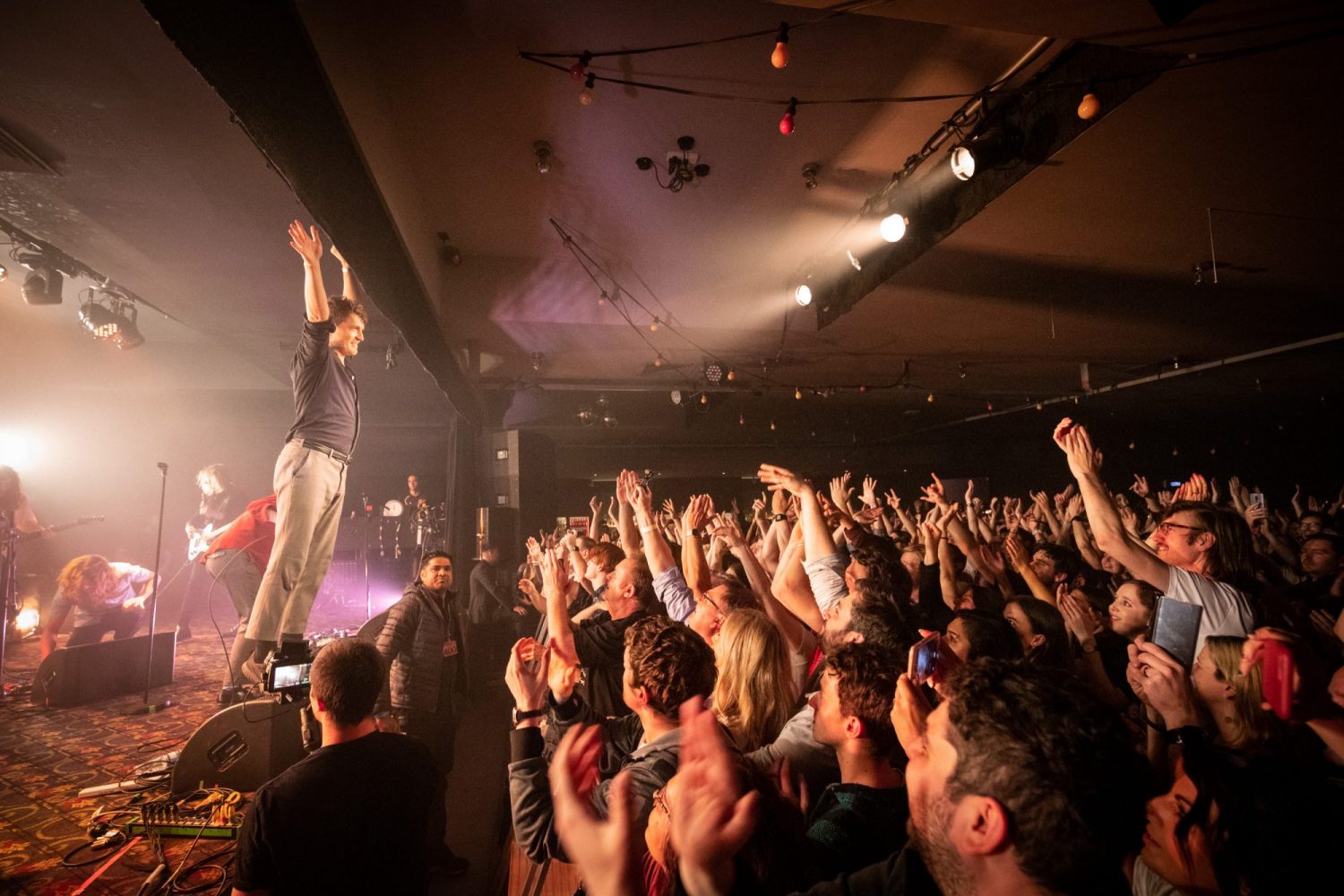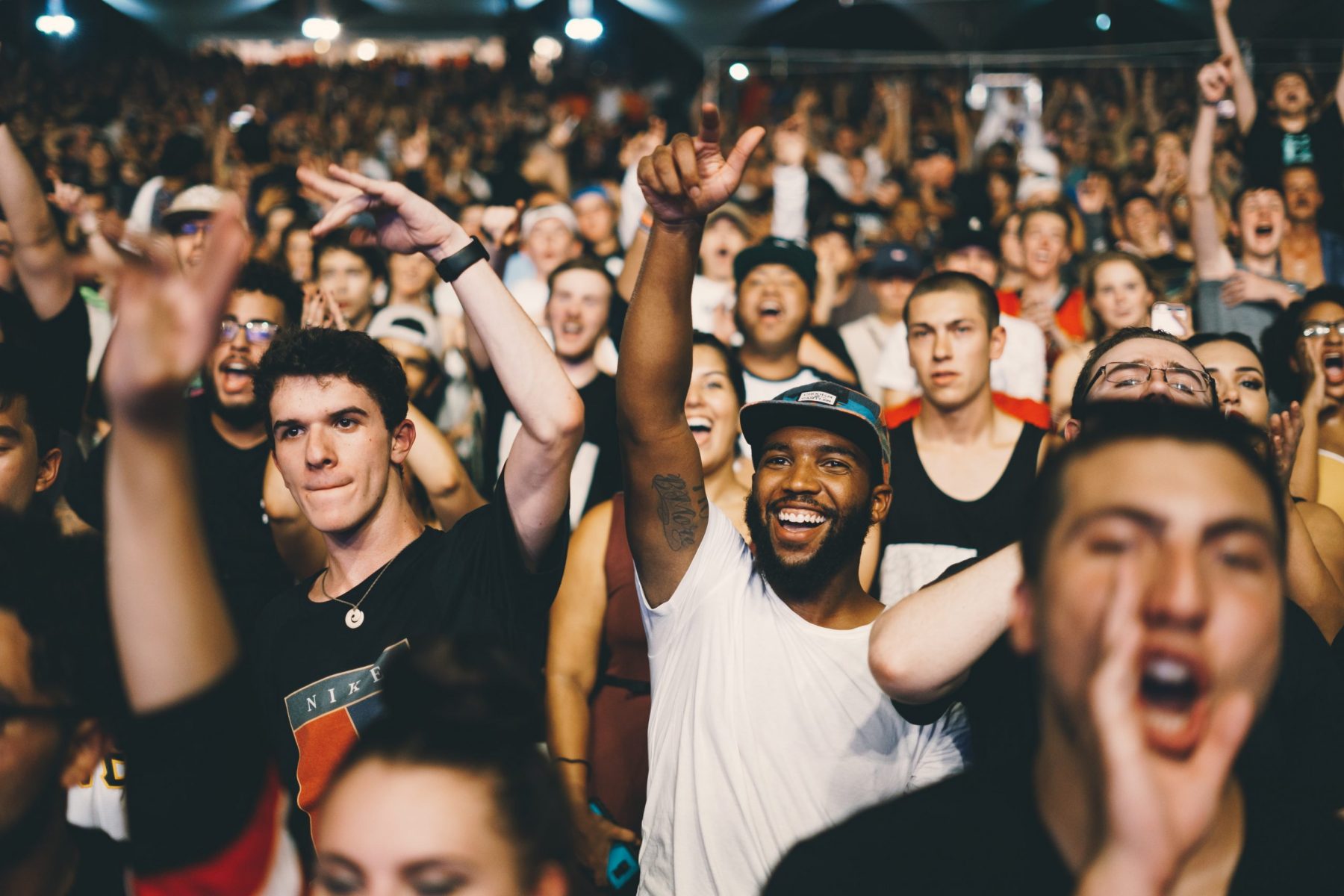When it comes to nightlife support, New South Wales is on the march.
New South Wales has been on course to return Sydney to a 24-hour economy after lockout laws hampered the city for the better part of a decade. The move initially came on January 14, when Premier Gladys Berejiklian revealed that the controversial legislation would be scrapped city-wide apart from Kings Cross.
The change saw the removal of Sydney’s 1:30am last entry clause for all licensed venues in the CBD. Last drinks were extended 30 minutes while bottle shops were able to stay open longer – closing at midnight from Monday to Saturday and 11pm on Sunday.
Now that it’s almost July and there is some semblance of normalcy returning to life as we know it, what has NSW got in mind?
Well, they’ve just announced Great Southern Nights, a government initiative to bring 1,000 COVID-safe gigs to Sydney and regional NSW in November. Developed to give the largely-dormant music and hospitality industries a much-needed boost, Great Southern Nights will see artists both old and new return to the stage with confirmed performers including the likes of Paul Kelly, Jimmy Barnes, Birds of Tokyo, The Jungle Giants, Missy Higgins, The Presets, The Veronicas and more.
In Stuart Ayres’ appending comment, the NSW Minister for Jobs, Investment, Tourism and Western Sydney said the groundbreaking event stands in line with a broader strategy.
“With the NSW government’s 24-hour economy strategy set to reinvigorate Sydney’s nightlife, Great Southern Nights will be a big step forward for our state’s live music and hospitality community that has been hit hard in recent times,” Ayres said.
On top of that, while the federal government hasn’t yet outlined a date for the return of nightclubs, due to concerns flagged overseas, NSW is looking to revive things from August.
NSW has also revealed a number of changes to liquor licencing. Many Sydney CBD locations will now be able to apply for new liquor licences for the first time in years as the city lifts a freeze that was devised as part of the aforementioned lockout laws.
Then there’s the draft Liquor Amendment Bill the NSW government has recently created in line with its 24-hour strategy. As part of this, they are proposing an incentives-based system to encourage good behaviour, with venues that maintain a clear record eligible for potential fee discounts.
How do these liquor licencing laws stack up with Victoria, the state that considers itself a torchbearer in nightlife sustenance and prosperity?
Well, Victoria has its own star rating system in place to reward performing venues but there remains a liquor licence freeze on the local government areas of Melbourne, Stonnington, Yarra and Port Phillip until June 30, 2021.
This freeze was introduced in 2008 and restricted the issuing of new liquor licences to venues looking to sell alcohol after 1am. It was then extended in June last year.
In spite of the freeze, accessible exemptions were manifested in 2015 which supported premises in the concerned councils which were live music venues, accommodation hotels or bars where food is always available that are up to 200-person capacity. The exemption has since been altered to accommodate live music venues up to 500-person capacity.
While many sectors of the nightlife spectrum are applicable for exemption to the freeze, a bar within these government areas that doesn’t offer food or live music isn’t eligible.
If you’re a venue outside these government areas, then prospects are brighter.
So that’s the state of play within Victoria – a preference for live music perpetuates the state’s reputation as a leading nighttime destination. But how have they adapted as COVID-19 strangles our creative sector? We’ve seen the cries for help from the industry-concerned, most recently through the ‘Save Our Scene’ campaign which Fiona Patten tabled in parliament on Thursday June 18.
This initiative asks the government to come together with Music Victoria to develop a package of needs-based financial assistance for Small-Medium-Enterprise (SME) live music venues until they are able to operate sustainably on the other side. The campaign is also asking for a clear roadmap to reopening at full capacity for these venues and a fund to be created to support the relaunching of the industry when COVID restrictions are lifted.
At the time of writing, the appending petition had over 16,500 signatures and we currently await a response from the government.
Speaking to Liam Alexander, co-owner of burgeoning Carlton nightclub and live music venue, Colour, there was activity early in the piece but support has since dried up.
“I was in Tasmania on the Overland Track with no phone reception when the club shut down and came back to a landscape in which I, our staff and a lot of people within live music in Melbourne had no jobs,” Alexander says. “Most people had been stood down with no income and we still had bills due including supplies, insurance, rent, and really no sight of when things might change and certainly nothing subsidised.
“That was the initial couple of weeks probably and then things started to roll out which was the small business grant from the state government and then discussions about rent relief, but it feels a bit stagnant now.”
Since the early going, the Victorian government has announced skerricks of support via JobKeeper, grants, rent relief and targeted support packages, but none of these have been significant enough, nor relevant enough, to live music venues that have larger overheads than most creative enterprises.
For Alexander, the issue stems from deficiency – in knowledge and compassion – with unaware landlords at the forefront.
“The transferral of the code of conduct from the federal government with regards to rent relief into actual state legislation, I think has been a letdown because a lot of the formal legislation relies on the notion of good faith and I don’t think many landlords are music people,” Alexander continues. “At least a lot of them don’t understand the cultural value of music and they also don’t understand the volatility of the industry and how ‘on a knife-edge’ a lot of the arts are in Victoria.”
As part of the government’s commercial tenancy relief scheme, local venues have been asked to fend for themselves in the crusade for reduced rent.
“So what a lot of people have come down to is you tell the landlord to negotiate in good faith but that doesn’t really hold them to as much as you’d perhaps like, so we don’t really have much of a position of bargaining. So, from our perspective, that’s the biggest thing – trying to go through formal mediation, that’s a process that’s ongoing for us at Colour.”
Alexander also spoke of battles with insurance companies scrambling to maintain income and the early stigma of COVID-19 restricting trade in early March, as two other major challenges the venue has incurred. That on top of being merely six months old and Colour hasn’t been able to lean on capital to pull them through.
So what comes next? Well, all venues can do is wait for the outcome of Patten’s government plea. The music industry’s commitment has been laid bare through the ‘Save Our Scene’ campaign, so now it’s onto the state to play their part.
Victoria says it preaches a 24-hour economy for Melbourne, but to this date, it’s been left in the dust by another state known for their pessimism and misunderstanding of its own nightlife culture.
Through NSW’s ambition to return Sydney to a 24-hour economy and the announcement of Great Southern Nights, there’s enough momentum there to suggest that they’re trending in the right direction when it comes to supporting live music and the venues that fall within that.
“Momentum” is an important word here – silence fuels uncertainty and inactivity fuels insolvency. It’s time to come to the party, Victoria. If you don’t do it now Melbourne’s unrivalled live music culture will never be the same.
Sign the petition here and help Melbourne’s live music scene survive.
It would also be helpful to follow ‘Save Our Scene’ on Facebook and Instagram and share it among your friends – the more numbers the more effective the campaign will be.
Never miss a story. Sign up to Beat’s newsletter and you’ll be served fresh music, arts, food and culture stories five times a week.

